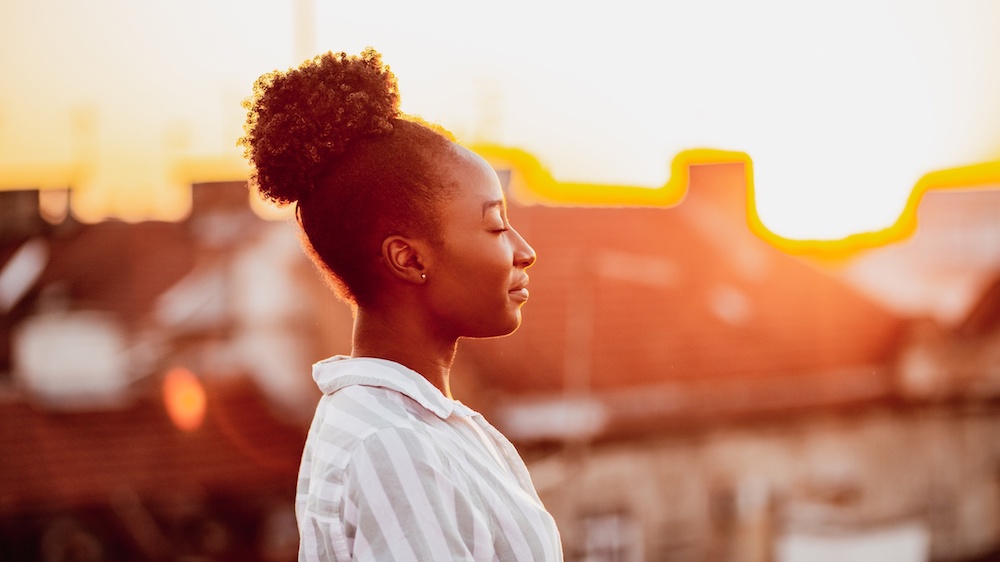If you’re interested in sharing your opinion on any cultural, political or personal topic, create an account here and check out our how-to post to learn more.
Opinions are the writer’s own and not those of Blavity's.
____
When I was 24, I was just out of college, freshly married and living in a new city. Although people thought I had it all together with a husband and a degree, it wasn’t the life I had imagined for myself.
I became pregnant a year into marriage, and my marriage became toxic. I struggled with complex PTSD that eventually manifested into other health issues, a lack of motivation and feelings of fear and isolation.
Mental health is not something discussed within the Black community. Even though Black adults in the U.S. are more likely than white adults to report persistent symptoms of emotional distress, only one in three Black adults who need mental health care receive it due to the stigma it holds. This rings especially true for African-American women, who are only half as likely to seek help compared to our white counterparts.
Growing up with a single mother who is schizophrenic, I’ve always been aware of mental health. But even then, my family used to say, “Therapy is for crazy people. You don’t need that.” Their prescription was church and prayer. Mental health is not a priority in Black churches, and issues like depression and anxiety can be seen as a consequence of not attending church. This didn’t resonate with what I needed.
Between bills and the weight from my family’s beliefs, therapy didn’t seem like it was an option. I kept everything together on the outside at first, but came to realize that I needed support to overcome my challenges. So, for the sake of my wellbeing, I began my search for alternative methods.
I discovered a woman named Queen Afua, a holistic health expert and author of Sacred Woman. One of the things she said that really hit home for me was, “Yoga, meditation, herbalism, astrology and chakras are not new age. It's an African natural lifestyle.”
This led me to begin reading books on chakras, buying crystals, making herbal tea and attending yoga and meditation classes. These were not things I grew up with, but I felt a natural pull towards them.
I started to notice that I was the only Black woman in my yoga class. Even though my family and friends couldn't understand my draw to these alternative methods, I knew there had to be other Black women who wanted to learn more about Black wellness. This is why I started Black Girl’s Healing House.
I created the Facebook group in 2018 to share what had helped me and fundamentally try to shift the relationship Black women have with their mental health, wellness and spirituality. Little did I know that three years later more than 61,000 women were on the same page. Now, Black Girl’s Healing House connects women with free and affordable resources through workshops, classes, retreats and services, and continues to help women find therapists, life coaches, herbalists, nutritionists and more so they can take control of their life.
It is critical to address the things that are hidden in the shadows of Black culture and seen as weaknesses. The Black community ostracizes those who are crippled with mental illness, creating a toxic cycle where we ignore it out of fear of shame.
In order to heal collectively, we have to have these difficult conversations. Not only for our mental health but also for our physical and spiritual health, because they are all connected. The conversations that are had in Black Girl’s Healing House shed light on these issues that Black women are facing and inspires them to begin their healing journey.
These women have helped me so much on my personal journey — this community has become my village. I’ve been connected with doulas who gave me virtual check-ins. I’ve had sessions with mental health counselors and life coaches. And I’ve had herbalists and reiki healers who helped me deal with my insomnia and physical pain. The village gave me the energy to take better care of myself, be a better mom and leave my marriage.
I’ve been blessed to begin healing so many wounds within myself. This is the happiest I’ve ever been in life and I’m currently teaching my family about wellness; how to eat right, incorporating herbs, aromatherapy, yoga and exercise. More and more they are starting to see the change in me.
It's my hope that the women in the group and beyond find their village, heal and manifest their dreams to bridge the generations-old gap between Black women and wellbeing. A simple post about family therapy and meditation can create a ripple effect. These tools are applied to the home and to the community, writing a new narrative for Black wellness.
I want all Black women to know that we can thrive outside of trauma, while also helping to create change in our greater community to live happier and healthier lives.
